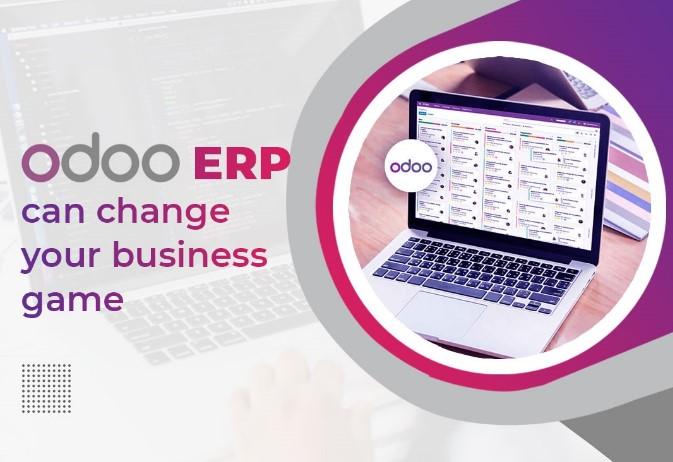Notifications

8 minutes, 4 seconds
-147 Views 0 Comments 0 Likes 0 Reviews

Many small businesses face the same frustrating problem—managing growth with outdated tools, spreadsheets, and scattered systems. The result is slow response times, repeated errors, disconnected departments, and lost opportunities.
These challenges often block the path to expansion and make it difficult to compete in fast-moving markets. If your business is still running multiple standalone applications or relying on manual tracking, ERP software for small businesses is no longer a luxury—it has become a necessity.
This article explores how ERP solutions, designed specifically for small businesses, are enabling smarter operations, improving profitability, and creating agility in 2025’s business landscape.
Disjointed Systems Slow Everything Down
Trying to scale a business using disconnected software often leads to bottlenecks, duplicated tasks, and rising costs. Sales, inventory, accounts, and customer service often operate with little visibility into each other’s data. When every department uses a separate tool, collaboration suffers and errors multiply.
An ERP system brings all critical business functions into a single, unified platform. It eliminates silos, automates time-consuming tasks, and provides real-time data insights that empower faster, more informed decisions. For small businesses, this kind of control and clarity leads to improved cash flow, better inventory planning, and more consistent customer service.
ERP as a Growth Catalyst, Not Just a Tech Upgrade
Many small businesses assume that ERP software is only for large corporations. That belief is outdated. Today’s ERP solutions are highly flexible, scalable, and cost-effective. With cloud-based deployment, modular designs, and mobile accessibility, ERP software for small businesses delivers powerful functionality without overwhelming complexity.
A strategically chosen ERP system does more than automate back-office tasks. It lays the foundation for business growth by aligning operations with long-term goals. It helps:
Build consistent, efficient workflows across departments
Access real-time business metrics and KPIs from a central dashboard
Forecast demand more accurately to reduce overstock and shortages
Respond faster to customer needs with integrated CRM and support
Streamline financial management for better compliance and reporting
This is not just about technology. It is about transforming the way your business operates from the inside out.
Key Considerations Before Implementing ERP Software for Small Businesses
Many ERP failures stem from poor planning, unclear expectations, or choosing the wrong system. Implementation is as important as the software itself. Here are the essential things to consider before you move forward:
Define your business objectives clearly before selecting a system
Choose a solution that fits your industry and size, not a generic one
Assess your current workflows and identify what needs improvement
Involve team members early to build user acceptance and reduce resistance
Set realistic timelines and allocate sufficient internal resources
Ensure data is clean and ready for migration
Work with a trusted partner who understands your growth needs
Prioritise scalability and flexibility to support long-term goals
Following these steps helps your business get real value from the ERP system rather than ending up with just another piece of software.
2025 ERP Trends Small Businesses Cannot Ignore
This year brings exciting advancements in ERP solutions that cater specifically to smaller organisations. These trends are shaping the way small enterprises manage resources, serve customers, and adapt to changing market conditions:
Cloud-first deployments for anytime, anywhere access
AI-assisted forecasting and inventory planning
Vertical ERP systems tailored to niche industries
Simplified mobile interfaces for field teams and remote workers
Faster implementation timelines using pre-configured modules
Built-in data analytics for instant insights
Tighter integration with eCommerce, POS, and digital payment platforms
Adopting these new capabilities helps small businesses remain lean, competitive, and ready for growth in uncertain markets.
Faster Implementation Means Faster ROI
Time is money—especially for small businesses with limited margins. A drawn-out ERP rollout can drain resources and delay benefits. Choosing a provider that offers rapid deployment, guided onboarding, and ongoing support is essential.
By implementing ERP software the right way, your business sees faster returns through:
Improved operational efficiency
Reduced manual errors and rework
Better customer retention through timely service
Enhanced financial control and forecasting
A fast start means faster progress toward your long-term business objectives.
Choosing a Partner That Understands Small Business Challenges
The right ERP vendor or consultant does not just install software—they become a strategic partner. They understand the nuances of running a smaller business, the importance of cash flow, and the need for flexible solutions that evolve as you grow.
An ideal partner helps:
Map the software to your business processes
Offer training that fits your team's experience
Ensure compliance with local Australian tax and reporting rules
Provide responsive support and upgrades as your business evolves
With the right partner, the implementation becomes a stepping stone to scalability, not a roadblock.
Final Thoughts
Small businesses may not have the resources of a large enterprise, but they do have agility, passion, and drive. When combined with the right ERP system, that energy becomes a powerful growth engine.
If your operations feel overwhelmed or your tools are hindering your team, now is the time to advance to the next stage. ERP software for small businesses has gone from being a future investment to a means of survival in the current market if companies want to maintain competitiveness.
Already, companies in Australia are noticing the differences of utilising modern ERP solutions and seeing the benefits in performance and decision making. One of Australia's leading digital transformation partners, Envertis, continues to assist these businesses in implementing ERP systems that are configured for their needs, leading to improved outcomes, efficiency, and ultimately, sustainable success.
Alex Forsyth is a business strategist focused on empowering growing enterprises with innovative digital tools. With hands-on expertise in ERP for small business solutions, the author collaborates with Envertis to help Australian SMEs streamline operations and scale confidently with future-ready ERP platforms.
ERP for Small Business ERP Software for Small Businesses ERP for Small Businesses ERP System for Small Businesses Best ERP for Small Business

